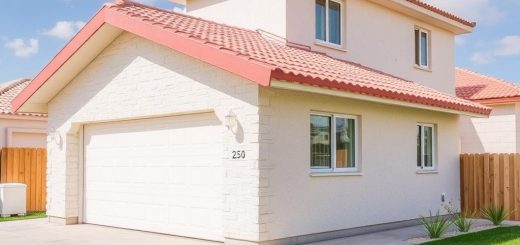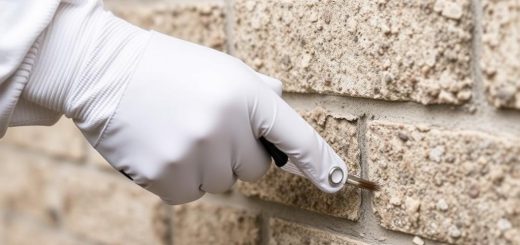Managing Utilities: Reducing Costs for Cyprus Properties
Utility expenses significantly impact the overall cost of maintaining properties in Cyprus. As energy prices fluctuate and environmental concerns intensify, property owners and managers in Cyprus are compelled to adopt effective strategies for managing utilities. Utility management Cyprus is not just about paying bills on time; it’s about understanding consumption patterns, integrating modern solutions, and making strategic decisions to minimize waste and reduce utility costs Cyprus. This comprehensive article explores the technical, practical, and economic aspects of utility management within Cyprus properties, focusing on actionable steps that property owners, facility managers, and tenants can leverage for greater utility savings Cyprus.
The Landscape of Property Utilities Cyprus
Cyprus’s subtropical Mediterranean climate directly influences utility consumption, especially in residential and commercial properties. Summers bring extensive air conditioning needs, while winters often rely on heating or hot water, impacting electricity and water usage patterns. Moreover, the island’s reliance on imported energy resources creates a volatile environment for utility costs Cyprus, necessitating a proactive approach to energy management Cyprus.
Property utilities Cyprus generally include electricity, water, gas, and waste management services. Among these, electricity dominates as the largest expense for most properties, followed by water due to limited freshwater resources and the cost associated with desalination or treatment processes. Waste management, while less directly impactful, can also influence operational budgets depending on the property type and size.
Understanding the breakdown of utility costs Cyprus is crucial for implementing efficient management tactics. The variability in utility rates, often influenced by government policies, market dynamics, and seasonal demand, means that static budgeting approaches can lead to unexpected overages. Thus, integrating dynamic monitoring tools and data-driven decisions has become essential.
Effective property utilities management in Cyprus hinges on understanding local climate effects and fluctuating energy prices.
Strategies for Energy Management Cyprus
Energy management Cyprus is a cornerstone of utility savings Cyprus, aiming at controlling and reducing energy consumption through technology, behavior modification, and optimization methods. This approach requires a thorough evaluation of how energy is used within properties and which processes or equipment contribute most to overall consumption.
One fundamental strategy is the installation of smart meters and energy management systems (EMS). These systems provide real-time data on consumption by appliances, lighting, HVAC systems, and other electrical loads. The granularity of this data enables property managers to pinpoint inefficiencies and adjust usage patterns immediately rather than waiting for monthly bills.
Another key method involves retrofitting existing buildings with energy-efficient technology. This includes upgrading lighting fixtures to LED, improving insulation, installing energy-efficient windows, and utilizing rooftop solar panels—a particularly suitable solution for Cyprus given its abundant sunshine. Combining renewable energy with energy storage solutions can significantly reduce dependence on the grid and consequently curb utility costs Cyprus.
Behavioral changes among occupants are equally critical. Educating tenants or staff about turning off unused equipment, setting optimal thermostat ranges, and scheduling energy-intensive operations during off-peak hours can yield substantial reductions in utility consumption without requiring significant capital investment.
In Cyprus, blending technology with occupant awareness drives the most meaningful energy management results.
Technological Innovations in Cyprus Energy Management
The rapid advancement of smart technologies has revolutionized how utilities are managed in Cyprus properties. IoT-enabled devices, automated control systems, and predictive analytics are increasingly being deployed to optimize energy consumption.
For instance, smart thermostats automatically adjust heating and cooling based on occupancy and weather conditions, minimizing unnecessary usage. Similarly, sensor-driven lighting systems turn off or dim when rooms are unoccupied. The integration of these technologies supports continuous optimization and reduces human error.
Furthermore, solar photovoltaic (PV) systems with intelligent inverters and battery storage enable Cyprus property owners to become partially or fully energy independent. Utility companies in Cyprus have also introduced net metering, allowing surplus energy generated onsite to be fed back to the grid, thereby creating a financial credit system that offsets future utility bills.
Utility management platforms combining these innovations provide a consolidated interface to track, forecast, and manage energy consumption. Such tools support decision-making and highlight opportunities for further utility savings Cyprus.
Water Efficiency and Its Role in Reducing Utility Costs Cyprus
Water is a precious resource in Cyprus, and its management is an essential component of the broader utility management strategy. With water scarcity issues and rising tariffs, optimizing water usage can deliver both environmental benefits and cost reductions.
Water efficiency involves assessing consumption points, detecting leaks, and introducing conservation technologies. In properties of all sizes, simple measures such as low-flow faucets, dual-flush toilets, and efficient irrigation systems can dramatically reduce water consumption.
Water recycling systems can also be introduced, especially in larger commercial and residential complexes. Greywater reuse for irrigation or toilet flushing is a sustainable practice that reduces the demand on freshwater supplies and subsequently lowers water utility bills.
Regular maintenance routines—such as pressure checks, pipe inspections, and the prompt repair of leaks—prevent hidden water losses that may otherwise go unnoticed yet increase costs over time.
Reducing water waste in Cyprus properties is both an environmental necessity and a powerful lever for lowering utility costs.
Optimizing HVAC and Cooling Systems
Heating, ventilation, and air conditioning (HVAC) systems account for a substantial portion of utility costs Cyprus, especially in commercial properties and residential buildings with central units. Given Cyprus’s climatic demands, efficient HVAC management can make a pronounced difference in utility savings Cyprus.
Routine maintenance such as cleaning filters, checking refrigerant levels, and inspecting ductwork ensure systems operate at peak efficiency rather than consuming excess energy. Replacing aging HVAC units with modern, energy-efficient models rated by international standards further enhances savings.
Advanced control systems that automate temperature settings according to occupancy, time of day, and external weather conditions prevent overcooling or overheating, which quickly drives up bills. Zoning systems that allow different areas of a property to be heated or cooled independently prevent wasted energy in unoccupied spaces.
Additionally, the adoption of natural ventilation designs and shading methods reduces reliance on mechanical cooling during the milder months, providing passive energy savings without loss of comfort.
Understanding Rate Structures and Incentives
A key to reducing utility costs Cyprus lies in understanding the structure of utility tariffs and taking advantage of government incentives or rebates. Cyprus utility providers charge varying rates based on consumption volume, time of use, or demand peaks, requiring savvy management to optimize billing.
Time-of-use (TOU) pricing schemes reward shifting electricity use to off-peak hours when rates are lower. Planning high-energy activities like laundry or pool pumping during these times can yield tangible savings on utility bills.
The Cyprus government and European Union initiatives often offer subsidies, grants, or tax incentives for installing renewable energy systems, energy efficiency upgrades, or water-saving devices. Being aware of these programs and applying them wisely reduces upfront costs and accelerates return on investment for utility management projects.
Leveraging Cyprus’s utility rate structures and available incentives is a smart strategy for reducing property expenses in the long term.
Monitoring and Analytics: The Foundation of Utility Management Cyprus
Continuous monitoring and data analytics are imperative in any serious utility management Cyprus strategy. Unlike traditional methods relying on monthly meter readings, modern approaches use sensors, data loggers, and platforms that provide ongoing, detailed consumption data.
These insights enable quick identification of anomalies, such as sudden spikes indicative of leaks, equipment malfunction, or behavioral changes. By setting benchmarks and tracking performance trends, property managers can establish clear targets for utility savings Cyprus and verify the impact of implemented measures.
Furthermore, predictive analytics use historical data and machine learning to forecast utility consumption, allowing preemptive actions in response to anticipated high demand periods or equipment maintenance needs.
| Utility Type | Monitoring Technologies | Benefits |
|---|---|---|
| Electricity | Smart meters, EMS, IoT sensors | Real-time usage tracking, peak demand control, energy savings |
| Water | Leak detectors, flow sensors | Leak prevention, efficient irrigation, lower water bills |
| Gas | Smart gas meters | Consumption awareness, safety monitoring |
Behavioral Approaches and Occupant Engagement
Even the most advanced technology achieves limited results without the cooperation of occupants. Engaging residents, employees, or tenants in utility management Cyprus encourages responsible usage and helps maintain sustainable habits over time.
Techniques include awareness campaigns, incentive programs for reduced consumption, and transparent reporting on utility performance. For example, providing occupants with access to their individual energy usage data empowers them to take ownership and adjust behaviors accordingly.
Clear communication channels and educational workshops highlight simple actions such as reducing standby power, optimizing appliance use, or managing heating and cooling more effectively. When users understand the financial and environmental impact of their actions, utility savings Cyprus are more easily achieved.
Emerging Trends in Utility Management for Cyprus Properties
The future of utility management Cyprus is closely intertwined with smart city initiatives, renewable integration, and digital transformation. The rise of decentralized energy production, such as distributed solar generation paired with virtual power plants, offers opportunities for properties to reduce dependency on traditional utilities and improve financial outcomes.
Blockchain and energy trading platforms enable prosumers to monetize excess power generation and participate actively in Cyprus’s evolving energy market. Meanwhile, advances in AI and machine learning facilitate more accurate consumption forecasts and automated optimization that minimize human intervention.
Sustainability certification programs such as BREEAM or LEED increasingly incorporate utility performance as key criteria, incentivizing property owners to adopt comprehensive energy management Cyprus to enhance property value and marketability.
Innovation and digital transformation will redefine utility savings potential for Cyprus properties over the coming decade.
Smart Planning and Design: The Blueprint for Utility Cost Reduction
Utility management Cyprus starts at the design phase of any construction or renovation project. Incorporating energy-efficient layouts, passive solar design, natural ventilation, and sustainable materials creates a foundation for lower ongoing utility costs.
For instance, orienting buildings to maximize natural daylight reduces lighting demand, while integrating thermal mass materials moderates indoor temperatures. Water-sensitive urban design features such as rainwater harvesting and permeable surfaces complement water conservation efforts.
Forward-thinking design also includes electrical infrastructure designed for easy upgrading and integration of smart technologies, ensuring the property remains adaptable to future utility management advancements.
Unlocking Utility Savings: Real-World Case Studies from Cyprus
Various property types in Cyprus have successfully implemented utility management strategies to achieve measurable cost savings. Residential complexes adopting solar PV systems, combined with LED retrofits and water-saving appliances, have reported utility cost reductions exceeding 30% annually.
Commercial office buildings employing advanced energy management systems and occupant engagement programs have realized significant improvements in electricity consumption during peak summer months. Similarly, hotels incorporating water recycling and smart irrigation systems have not only reduced utility bills but also strengthened their commitment to sustainability.
These case studies underscore the necessity of a tailored, multi-dimensional approach to effectively manage property utilities Cyprus and reap the maximum utility savings Cyprus possible.
Empowering Property Managers: Tools and Best Practices
Property managers are critical stakeholders in the utility management ecosystem. Equipping them with the right tools, knowledge, and processes ensures ongoing utility cost control.
Best practices include regular training on utility trends and management software, establishing clear operational protocols for energy use and maintenance, and fostering partnerships with utility providers for dynamic feedback. Implementing utility benchmarking against similar properties aids in identifying performance gaps and setting realistic improvement targets.
Contracts and procurement strategies, such as consolidated utility purchases or demand response participation, provide additional avenues to secure better pricing and optimize utility spend.
Investing in professional capabilities significantly enhances the effectiveness of utility management Cyprus on the ground.
Moving Forward: Shaping a Sustainable and Cost-Effective Utility Future for Cyprus Properties
Reducing utility costs Cyprus demands an integrated, forward-thinking approach more than simple cost-cutting measures. By combining technology, design innovation, occupant behavior, and intelligent financial planning, property owners can transform utilities from a financial burden into an optimized asset.
The balancing act involves not only lowering immediate expenses but also enhancing property resilience, sustainability, and market appeal in a rapidly changing energy landscape. With careful management, Cyprus properties can benefit from long-term utility savings Cyprus and contribute to national goals of energy efficiency and environmental responsibility.
Managing utilities in Cyprus is an ongoing journey demanding commitment, adaptation, and continual optimization—a challenge that pays dividends for the environment, tenants, and owners alike.
Frequently Asked Questions
- What are the most effective ways to reduce utility costs Cyprus in residential buildings?
Upgrading to energy-efficient appliances, installing smart meters, using LED lighting, adopting solar photovoltaic systems, and practicing water conservation measures are some of the most effective ways. - How can property managers leverage technology for utility management Cyprus?
By deploying smart meters, energy management systems, IoT sensors, and analytics platforms, property managers can monitor consumption in real-time, identify inefficiencies, and implement timely corrective actions. - Are there government incentives available for renewable energy installations in Cyprus?
Yes, Cyprus authorities along with EU programs offer grants, subsidies, and tax benefits to support renewable energy projects and energy efficiency upgrades for properties. - How does water efficiency impact overall utility costs in Cyprus properties?
Reducing water consumption through efficient fixtures, leak detection, and greywater reuse directly lowers water bills and supports sustainability goals, significantly influencing total utility expenses. - What role do occupant behaviors play in utility savings Cyprus?
Occupants contribute crucially by adopting energy-conscious habits such as turning off unused devices, managing HVAC settings sensibly, and participating in water-saving efforts, amplifying the impact of technological measures. - Can renewable energy systems completely eliminate electricity bills in Cyprus properties?
While solar PV and storage can substantially reduce grid dependence, complete elimination depends on system size, consumption patterns, and net metering policies. Most properties achieve partial offset at a minimum. - How important is regular maintenance in controlling utility costs?
Regular maintenance ensures efficiency of HVAC, plumbing, and electrical systems, preventing wasted energy or water that could otherwise increase utility expenses.



